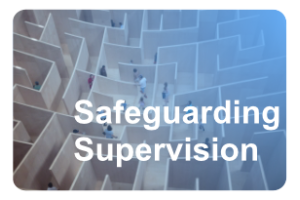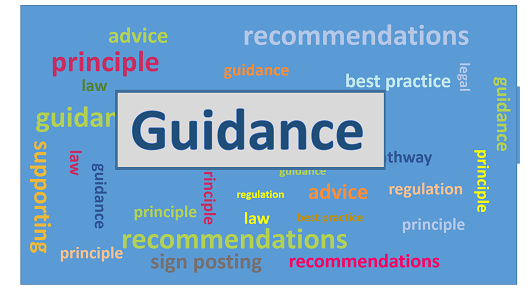Safeguarding News September 2024
Dear Colleague
September is the harbinger of autumn and a timely reminder that safeguarding is an all-year-round responsibility. Whether in schools, workplaces, or communities, safeguarding practices ensure that every individual, especially the more vulnerable in society are protected from harm, abuse, and neglect.
This Month
In this month's newsletter we feature the scrapping of single headline Ofsted grades and highlight a new report on the current state of online safety in schools, which identifies both areas that have improved and areas for concern.
With the significant leap in technological advancement of Artificial Intelligence in just a handful of months, there is cause for both celebration and concern. The increased sophistication and prevalence of financial scams rooted online, require us as individuals to be extra vigilant and alert to the potential dangers. There are planned changes in the banking sector which may slow down transactions but will allow banks up to 72 hours to investigate suspicious transactions thereby increasing consumers' protection from fraud such as romance scams.
The Scams section underscores just how important it is to stay informed with incidents involving fake computer repairs and fabricated parking ticket texts. We also offer guidance on how to avoid losing your pension to phoney investment scams.
Together, let's strengthen our commitment to safeguarding and ensure that this autumn is one of protection, care, and vigilance.
New Courses and New Dates Available
Effective Safeguarding Record Keeping
This new two-hour live Zoom training is designed to highlight key legislation and statutory guidance related to record keeping. The session will define the meanings of confidentiality, consent, information sharing, privacy, mental capacity, record storage and retention periods, data protection and UK GDPR in relation to safeguarding record keeping.
All delegates must already have a current Leading on Safeguarding training certificate in place before attending this course.
For further information click here
Professional Boundaries Training
SAFEcic is pleased to announce the launch of a new training course focused on safeguarding professional boundaries within their own roles and responsibilities. The course is designed for managers of all those who work or volunteer directly, with children, young people, adults at risk and/or their families or carers. All delegates must already have current Safeguarding training certificates in place, as relevant to their role, prior to attending this course.
This two-hour live via Zoom course will allow delegates to gain an understanding of the concept of the duty of care and the code of conduct required when working with children, young people and adults who may be at risk. We look at issues which challenge professional boundaries in the organisation and debate possible scenarios and the actions that need to be taken when there is a concern that professional boundaries have been breached.
The course includes a digital resource pack and certificate of attendance or each delegate, valid for three years
For further information click here
Single Central Record
Single Central Record (SCR) live 2 hours Zoom course with one of our experts and designed for education colleagues. This thorough, detailed and fully up to date course is essential for all those involved with managing and reviewing the SCR in regulated educational settings, in line with Ofsted expectations.
For further information click here
Safeguarding Supervision
Effective safeguarding Supervision provides support, coaching and training for staff supervision and promotes the interests of  children. Supervision will foster a culture of mutual support, teamwork and continuous improvement, which encourages reflection and confidential discussion of sensitive issues.
children. Supervision will foster a culture of mutual support, teamwork and continuous improvement, which encourages reflection and confidential discussion of sensitive issues.
To find out more, email This email address is being protected from spambots. You need JavaScript enabled to view it.
Free Safeguarding Consultations
SAFEcic's ever-popular FREE Safeguarding Consultation service continues throughout October and November. Consultations are available on a first-come, first-served basis. Don't miss out on this free opportunity.
Email us at This email address is being protected from spambots. You need JavaScript enabled to view it. to arrange your FREE consultation which offers help and advice on:
- Policies and procedures
- Safer recruitment
- Safeguarding training
- Single Central Record
- DBS Checks
- Best practice
- and much more
Training Schedule
Our latest training schedule is listed below and feel free to share this email with your colleagues and they too can join our newsletter database.
To sign up simply click here.
SAFEcic Blended Learning Training Calendar
Professional Boundaries Training online Zoom training
Effective Safeguarding Record Keeping live online Zoom training
Single Central Record (SCR). Managing, Reviewing and Updating live online Zoom training
Leading on Child and Adult Safeguarding online course plus live online Zoom training
Standard Child and Adult Safeguarding online course plus live online Zoom training
Safeguarding: Trustees’ legal responsibilities online course plus live Zoom training
Safer Recruitment Training online course plus live Zoom training
Managing and Leading on International Safeguarding online course plus live online Zoom training
SAFEcic's free hub resources by setting are available through the SAFEcic.co.uk main menu. Alternately you can bookmark the links below:
Education | Dental | Charities | GP & Primary Medical Services | Fath Groups | Entertainment & Leisure | Working Overseas |
Statutory Guidance

England
The statutory guidance states:
“Creating the right conditions to allow all social workers to thrive and do the best social work they can relies on a stable, effective, and supported workforce. This guidance describes a set of rules that collectively set out what local authorities should do when using agency child and family social workers. The rules are designed to improve the stability and quality of the child and family social worker workforce to enable social workers to build quality relationships with children and families that underpin better outcomes for vulnerable children. The rules are also designed to reduce the overreliance on and costs of agency child and family social workers. This is to create a more sustainable workforce, so more resource is available to develop the workforce and improve the outcomes of children and families.”
Inquiry and Review Reports and Responses

Chartered Institute of Fundraising (CIOF) releases findings from Independent Review – Thursday 5 September 2024
Source: Chartered Institute of Fundraising (CIOF) published on this website Friday 6 September 2024.
The Chartered Institute of Fundraising (CIOF) has released the report and findings from the Independent Review into historical allegations of sexual harassment/assault. The Chartered Institute fully accepts the findings and recommendations of JEDI Consultancy’s review and has issued an apology
Research Briefings and Reports, Consultations, Campaigns and Studies

1 Safeguarding in English schools a Research Briefing from House of Commons Library
Source: House of Commons Library published on this website Tuesday 10 September 2024.
Schools are an important part of the wider system for safeguarding children in England and are in a position to identify concerns early and prevent them from escalating. Under the Education Act 2002, local authority-maintained schools have a duty to carry out their functions with a view to safeguarding and promoting the welfare of their pupils. A similar requirement is placed on independent schools (which includes academies and free schools) by the Independent School Standards Regulations.
The Department for Education’s statutory guidance on Keeping children safe in education, provides information on what schools are required to do to meet their safeguarding responsibilities. In large part, this briefing summarises the guidance. It should not, however, be considered a substitute for it, or for professional legal advice, when looking for detailed guidance on specific cases.
This briefing contains Information on the safeguarding duties of English schools, governing bodies and staff, including during recruitment, and in dealing with allegations.
2 College of Policing consultation on Modern Slavery Guidance
Modern slavery can take many forms, including human trafficking – where victims are taken between countries or around a country so they can be exploited – as well as sexual exploitation, forced labour, domestic servitude and criminal exploitation.
Cases of modern slavery are often linked to organised crime groups and networks who target vulnerable people, including children and young people. Many victims often don’t realise they are in slavery or being exploited and are often targeted, for example, if they have financial, social or health issues, or because of their age or immigration status.
Since the creation of the National Referral Mechanism (NRM) in 2009, the number of people who have been identified as potential victims of modern slavery has been steadily rising. The latest figures show 17,004 potential victims of modern slavery were referred to the Home Office in 2023, demonstrating that policing and our partners are improving at identifying potential victims and there is better awareness of the reporting system.
However, these crimes can have a devastating impact on vulnerable individuals and communities. Add to this the links to organised crime networks, and it is evident much more needs to be done. Authorised Professional Practice (APP) is the official source of guidance, helping everyone in policing deliver trusted and effective policing that cuts crime and keeps people safe. The Modern slavery APP has been updated to include and incorporate new legislation and what is working to tackle modern slavery and prevent more vulnerable people becoming victims.
The APP provides guidance for:
- Frontline officers: including on the types of exploitation, spotting the signs that someone is a victim, and what actions to take to keep victims safe and support an effective investigation.
- Investigators: including safeguarding vulnerable victims so they are no longer at risk, how to build an evidence-led investigation into this complex type of crime, and how they can access regional and national support during their investigation.
- Supervisors: including how they should ensure cases of modern slavery are investigated thoroughly and effectively by officers and staff who possess the right skills and experience.
- Senior leaders: including how they should establish processes that support all officers and staff within their force to understand, prioritise and respond to the threat of modern slavery.
The consultation closes 12th November 2024.
Regulatory Bodies

Ofsted
1 Single Headline Ofsted Grades Scrapped in Landmark School Reform
Single headline grades for schools are now scrapped with immediate effect to boost school standards and increase transparency for parents. Reductive single headline grades fail to provide a fair and accurate assessment of overall school performance across a range of areas and are supported by a minority of parents and teachers. The change delivers on the government’s mission to break down barriers to opportunity and demonstrates the Prime Minister’s commitment to improve the life chances of young people across the country.
For inspections this academic year, parents will see four grades across the existing sub-categories: quality of education, behaviour and attitudes, personal development and leadership & management. This reform paves the way for the introduction of School Report Cards from September 2025, which will provide parents with a full and comprehensive assessment of how schools are performing and ensure that inspections are more effective in driving improvement. Recent data shows that reports cards are supported by 77% of parents. The government will continue to intervene in poorly performing schools to ensure high school standards for children.
As part of today’s announcement, where schools are identified as struggling, government will prioritise rapidly getting plans in place to improve the education and experience of children, rather than relying purely on changing schools’ management. From early 2025, the government will also introduce Regional Improvement Teams that will work with struggling schools to quickly and directly address areas of weakness, meeting a manifesto commitment.
2 Joint Targeted Area Inspections to Focus on Domestic Abuse
A new programme of Ofsted inspections, starting in September, will scrutinise how local services link up in response to domestic abuse. The joint targeted area inspections will be carried out by Ofsted, Care Quality Commission (CQC), HM Inspectorate of Constabulary and Fire & Rescue Services (HMICFRS) and HM Inspectorate of Probation (HMIP).Since JTAIs last focused on this theme in 2016, the Domestic Abuse Act 2021 has made clear that children are victims of domestic abuse in their own right if they have seen, heard or experienced the effect of the abuse.
The upcoming JTAIs will evaluate local areas’ strategic arrangements for all children, with a specific focus on unborn babies and children aged 0 to 7 years old. They will look at how children’s welfare is promoted and protected through effective and timely responses to adult victims of domestic abuse – such as through maternity and adult mental health services. And they will consider how perpetrators are dealt with, including through the probation service.
3 Ofsted Publishes Updates to School Inspection Handbooks
From this term state-funded schools will not receive an overall effectiveness grade during graded inspections, following the decision by the Department for Education. This change has been reflected in the handbooks. They have also been updated to reflect the previously announced changes to ungraded inspections, designed to reduce the burden on school leaders and allow more time and flexibility for inspectors to get to know the school, including its context and priorities.Further changes include an update to how schools are notified of inspections. Notifications for graded and ungraded inspections will now be carried out only on the Monday mornings of the week Ofsted will inspect the school.
Other updates include a change to allow schools which have issues with safeguarding, but there are no other concerns, to remedy the issues before the report is published.
The early years and further education and skills inspection handbooks have also been updated
Whistleblowing Disclosures Made to the Charity Commission for England and Wales 2023 to 2024 explains the Commission’s approach to whistleblowing and the reports that they have received between 1 April 2023 to 31 March 2024.
The Charity commission has published this in response to their duty as a prescribed person to report annually on the whistleblowing disclosures that have been made to us. This duty can be found in The Public Interest Disclosure (Prescribed Persons) Order 2014.
The government will collate the reports from Prescribed Persons and lay them before Parliament.
Online Safety

1 SAFER INTERNET DAY 2025 Too good to be true? Keeping yourself and others safe from scams online
Safer Internet Day 2025 will take place on the 11th of February 2025, with celebrations and learning based around the theme.
Coordinated in the UK by the UK Safer Internet Centre, the celebration sees thousands of organisations get involved to promote the safe, responsible and positive use of digital technology for children and young people.
About Safer Internet Day
Over the years, Safer Internet Day has become a landmark event in the online safety calendar. Starting as an initiative of the EU SafeBorders project in 2004 and taken up by the Insafe network as one of its earliest actions in 2005, Safer Internet Day has grown beyond its traditional geographic zone and is now celebrated in approximately 170 countries worldwide.
2 Lucy Faithful introduce their chatbot - a pioneering tool in the fight against online child sexual abuse
The National Crime Agency estimates that there are up to 830,000 adults in the UK that pose some degree of sexual risk to children, and last year the Internet Watch Foundation found more than 275,652 web pages containing images and videos of child sexual abuse. The impact on the children abused is lifelong, and their suffering is compounded every time someone shares or accesses these images and videos.
3 Sharing intimate images without consent will be made a ‘priority offence’ under the Online Safety Act
Sharing intimate images without consent will be made a ‘priority offence’ under the Online Safety Act and social media firms will have to proactively remove and stop this material appearing on their platforms. New changes to the law will force tech firms to clamp down on the sharing of non-consensual intimate images on their platforms as part of a drive to tackle online sexual offending. The offence of sharing intimate images without consent will be classified as the most serious type of online offences under the Online Safety Act, meaning platforms will now have to take steps to proactively remove this material, as well as prevent it from appearing in the first place. If they fail to do so under this new law, they could face fines.
The strengthening of the law forms part of the government’s commitment to ensure new and existing technologies are safely developed and help keep people safer online, particularly women and girls with more than one in three women in the UK having experienced abuse online. changes will help tackle sexual offending and the normalisation of misogynistic material online as part of the government’s mission to halve violence against women and girls over the next decade.
The Online Safety Act will require social media firms and search services to protect their users from illegal material on their sites, with protections due to come into force from Spring next year. The most serious forms of illegal content are classed as ‘priority offences’ meaning regulated online platforms will have additional duties to proactively remove and stop from appearing on their sites.
This will mean intimate image offences are treated as priority offences under the Act, putting them on the same footing as public order offences and the sale of weapons and drugs online.
If firms fail to comply with their duties the regulator Ofcom will have robust enforcement powers, including imposing fines that could reach up to 10% of qualifying worldwide revenue.
4 New report reveals the current state of online safety in schools across England
The 2024 analysis of the 360 Degree Safe database demonstrates approach to online safety policy and practice across schools and colleges in England. The latest report highlights strengths in policy and technical measures; showcasing particular strengths within areas such as Filtering, Online Safety Policy, Monitoring, and Professional Standards (amongst others).
The report also demonstrates causes for concern, highlighting that areas requiring long-term investment, training, and community engagement are weaker. Schools are seen to have made minimal progress in essential areas, such as data security, staff training, and stakeholder engagement.
The analysis explores the data collected from over 17,000 schools across England who make use of the 360 Degree Safe tool. To learn more about this data, observations, strengths, and areas in need of improvement, please download the latest report.
Together with the newly established standards from the Department for Education (DfE), the latest 360 Degree Safe report on online safety in English schools from the UK Safer Internet Centre reveals a surprising and concerning slowdown in progress. While schools have swiftly adopted tools like AI and other digital resources, they are struggling to keep up with the rapidly evolving demands of online safety, underscoring the need for renewed focus and investment in this critical area.
Call to Actions:
To bridge these gaps, schools must prioritise the areas where progress has stalled. Key areas needing immediate attention include:
- Data Security: Strengthening measures to protect personal data and comply with regulations.
- Staff and Governor Training: Ensuring all staff and governors receive thorough training to navigate the complex online safety landscape.
- Youth Involvement: Actively involving young people in shaping online safety policies to ensure that they are relevant and effective.
5 Child protection groups warn there’s nothing to stop imagery sent to Edwards spreading further on WhatsApp.
Sexual images of children sent to Huw Edwards could still spread on WhatsApp “today, tomorrow, and the next day” amid warnings Meta is failing to stop the spread of child sexual abuse material. Edwards admitted having indecent imagery of children as young as seven, including Category A imagery, the most extreme category of child sexual abuse imagery in the UK which can include penetration, rape, sadism, or even bestiality. The material was sent to Edwards via WhatsApp, an end-to-end encrypted messaging service, where even the company itself cannot see, let alone block, the criminal files being shared.
Scams

1 Cold-calling companies offering ‘computer repairs’ shut down after preying on vulnerable pensioners
Source: The Insolvency Service published on this website Monday 3 September 2024.
Two companies which defrauded vulnerable pensioners by falsely claiming their computer had a security issue have been shut down. DT Care Ltd and Amolin Solution Limited were wound-up at the High Court in Manchester on Friday 30 August.
Both companies conned their elderly victims by phoning out of the blue to tell them their computer needed urgent repairs. The victims, aged in their 70s and 80s, believed they were taking genuine calls from well-known IT companies and allowed them remote access to their computer. They were then convinced into paying hundreds of pounds for services that were not provided. Insolvency Service investigators spoke to a number of pensioners who were scammed by DT Care and Amolin Solution. All the victims repeated the same cold-calling tactics used by both companies to gain remote access to the computer.
All enquiries concerning the affairs of the DT Care and Amolin Solution should be made to the Official Receiver of the Public Interest Unit: 16th Floor, 1 Westfield Avenue, Stratford, London, E20 1HZ. Email: This email address is being protected from spambots. You need JavaScript enabled to view it..
2 How can you protect yourself? Here are some steps to protect yourself fraudsters trying to get your pension. Unsolicited communication about your pension: if you get a call out of the blue (a cold call) about your pension, the safest thing to do is hang up
Action Fraud is warning savers to stay vigilant and protect their pensions and investments from fraudsters trying to trick people out of their lifetime savings, as new data reveals £17.7 million lost to pension fraud last year.There were 559 reports of pension fraud in total and £17,750,635 lost in 2023, with an average loss of £46,959 per person. Action Fraud, the national fraud and cybercrime reporting service, has launched a pension fraud awareness campaign, warning people to protect their pension pots and investments from fraudsters, by encouraging the public to do their research before making changes to pension arrangements.
What to do if you have been a victim:
Report it: if you’re worried about a potential scam, or you think you may have been contacted by a fraudster, report it to Action Fraud online at actionfraud.police.uk or by calling 0300 123 2040. In Scotland, report it to Police Scotland on 101.
If you have made a payment: inform your bank as soon as possible, they can help you prevent any further losses. Monitor your bank statements regularly for any unusual activity.
3 Driving and Vehicle Standards Agency (DVSA) issues warning about parking fine scam text messages
The text message warns people that they have a ‘parking penalty charge’, and that if they do not pay on time, that they might:
- be banned from driving
- have to pay more
- be taken to court
The text message is misspelt and reads "Dvsa notice for you: You have a parking penalty charge due on 2024/9/30. If you do not pay your fine on time, Your car may be banned from driving, you might have to pay more, or you could be taken to court. Please enter your license plate in the link after reading the information, Check and pay parcking penatly charge. Thank you again for your copperation. Dvsa."DVSA does not issue or deal with parking fines.
What to do if you received a message
You can report scam text messages to the National Cyber Security Centre.
Find out what to do if you think you’ve shared personal information.
If you’ve lost money or have been hacked as a result of responding to a suspicious text message, report it at:
www.actionfraud.police.uk or call 0300 123 2040 (in England, Wales or Northern Ireland) or to Police Scotland by calling 101 (in Scotland).
Worthy of Note

1 Metropolitan Police: Statement on allegations against Mohamed Al Fayed
“As a result of numerous allegations against Mohamed Al Fayed being reported in the media, we are now asking any potential victim-survivors who may not have come forward before to do so. We recognise the significant step many people have already taken in reporting allegations, and know there are many reasons others may have not yet come forward. We must ensure every victim-survivor who has reported offences or is considering reporting has the confidence and ability to speak to us. Officers are currently making contact with other organisations, including lawyers representing individuals whose allegations have featured in recent media coverage, to ensure they have the opportunity to speak with us and report any offences. Additional, specialist support for those who have made contact with us in the past, along with those who come forward, has been put in place and this will continue as our enquiries progress. This support will be provided by specially trained officers with experience in dealing with sexual offences who will work with victim-survivors and provide links to external support agencies should this be required. It is important to make clear at this stage that it is not possible for criminal proceedings to be brought against someone who has died. This means there is no prospect of any conviction relating to Al Fayed himself. “However, we must ensure we fully explore whether any other individuals could be pursued for any criminal offences. As such, we are carrying out full reviews of all existing allegations reported to us about Al Fayed to ensure there are no new lines of enquiry based on new information which has emerged.”
There are various ways to contact police about if you have been affected:
- call the Complex Investigation Team on 020 8217 6582 or 6586 between 8am and 6pm Monday to Sunday;
- call 101 at any time and quote CAD1920/26Sep;
- or email This email address is being protected from spambots. You need JavaScript enabled to view it.
- use the Met’s online portal
2 Man convicted of conspiring to commit FGM against young girl in legal first
A former PhD student has been found guilty of conspiring to commit female genital mutilation (FGM) against a young girl in the first conviction of its kind in England and Wales. Emad Kaky, 47, from Swansea, arranged for the child to travel from the UK to Iraq where he had organised for her to be subjected to FGM and forced into marriage. It is the first time a person in England and Wales has been convicted of conspiring to commit FGM.
Reasons to Remain Vigilant in All Aspects of Safeguarding

1 Mother and lover jailed for conspiring to rape a child
A mum and her lover have been jailed after conspiring for him to rape her young daughter. The pair, who cannot be named in order to protect the identity of the victim, were sentenced at Plymouth Crown Court on Friday 30 August. The woman, from East Cornwall, was jailed for 17 years and the man, from North Cornwall, for 13 years. They were both given Sexual Harm Prevention Order for 20 years. Police began an investigation in 2021 after the man left his phone with someone in a pub, where they saw concerning messages relating to the sexual abuse of a young girl. Officers seized the phone as evidence and arrested the man and woman. During the investigation, Detectives found text messages which showed that they were planning for the woman to drug her child, aged six, in order for the man to rape her. They also found sexually explicit images of the child that the woman had taken and sent to him. In order to protect the identity of the victim, the offenders cannot be named, and the specific location of the offences are not disclosed.
If you or someone you know has been a victim of rape or sexual assault, you are encouraged not to suffer in silence and report it to the police by calling 101, or 999 in an emergency. Alternatively, you can report information anonymously to the independent charity Crimestoppers on 0800 555 111 or contact your local Sexual Assault Referral Centre (SARC): England, Wales, Scotland and Northern Ireland
2 Trio sentenced after using vulnerable man’s home to deal and take drugs
Three people have been sentenced after they were caught using a vulnerable man’s home in Cambridge to deal and take drugs. Police visited the property in Kingsway on 30 May last year following concerns the resident was being cuckooed. Inside they found a man in his 60s as well as two men and a woman who had no reason to be there. Officers also discovered class A drugs including crack cocaine and heroin, mobile phones with messages linking to drug dealing, cash a knife and other drug paraphernalia.
And Finally
Social Workers were right: The British Association of Social Workers (BASW) response to the Kirstie Allsop and Marina Fogle malicious reports referrals
BASW have confirmed the statutory procedures that must be followed by social workers:
“Beyond the noise, what the media coverage surrounding the Kirstie Allsopp story misses is how social work actually works. If a referral is made it must be acted on when certain criteria is met, it is simply the law. This approach doesn’t discriminate between class or status, it applies to all. Sadly, like the police, social work does receive malicious referrals, and like the police, we still must make enquiries to establish which referrals require further work and which can be closed without further action, despite our profession facing increasing challenging times with dwindling resources.
Some suggested that social work should differentiate between malicious referrals and actual referrals. However, how does one know this without making an enquiry, without having at least one phone conversation with a parent/guardian? If we left initial referral management to subjectivity, we would open the gates to too much variance and potentially miss serious abuse. This is why referrals are looked into, even if it just constitutes a couple of phone calls. After this, referrals are considered to see whether they get escalated to actual case management. The social worker in this case didn’t do anything wrong, they followed the law and the guidance.
Additionally keeping a file open is usual practice, since we know that usually a series of incidents or referrals builds a picture, which may indicate a more involved piece of work is needed with a family, something for which the public would be grateful for a social worker intervening. Social work is a complex job that constantly works in the grey area, which is why it is such a challenging yet rewarding role, one worthy of our respect. Instead of outrage, more consideration for context and the bigger picture for how social work operates would be valued.”



